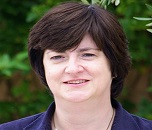Theme: The voice of rare diseases - advances in research and treatment
Rare Diseases 2019
Details of Rare Diseases 2019 in Japan
| Conference Name | Place | Date |
|---|---|---|
| Rare Diseases 2019 | Tokyo | Japan | October 16-17, 2019 |
On behalf of the organizing committee, we are pleased to announce that the 10th Annual Congress on Rare Diseases and Orphan Drugs (Rare Diseases 2019) will be held from October 16-17, 2019 in Tokyo | Japan. Rare Diseases 2019 provides a premier interdisciplinary platform for researchers to present the latest research findings and describe emerging technologies, and directions in rare diseases and orphan drugs issues. The conference seeks to contribute to presenting novel research results in all aspects of Rare Diseases and Orphan Drugs.
The conference aims to bring together leading academic scientists, researchers and research scholars to exchange and share their experiences and research results about all aspects of rare diseases and orphan drugs. It also provides the premier interdisciplinary forum for scientists, professors, specialists, researchers, students and practitioners to present their latest research results, ideas, developments, and applications in all areas of rare diseases and orphan drugs. The conference will bring together leading academic scientists, researchers, Industrial delegates Healthcare Professionals and scholars in the domain of interest from around the world.
The conference's goal will to provide a scientific forum for all international prestige scholars around the world and enable the interactive exchange of state-of-the-art knowledge. The conference will focus on evidence-based benefits proven in clinical trials and scientific experiments.
Why to attend?
Join the Rare Diseases and Orphan Drugs Congress to keep up to date with the industry and to learn from our expert speaker panel, bringing you important new case studies and reports on this year's relevant topics.
- Learn more about global trends in rare diseases and its advances in the therapeutic and diagnostic market.
- Discussing strategic win-win collaborations to help accelerate rare disease clinical drug development, and improve relationships between drug developers and patients to consider both parties interests
- Hear more about how patient engagement by integrating the patient perspective into the drug development process through patient advocacy, patient-centric research, and patient groups
- Learn about how the regulatory landscape for drug approvals is different between countries, and why it is important to keep informed about the regulations and guidelines of each region
- Gain knowledge of different rare diseases and their unique challenges, as well as how treatment methods can be transferred to other rare diseases
- Introducing cell and gene therapies to rare disease treatment - learn how gene therapy methods can improve the treatment of rare diseases and why it is becoming more commercially successful
Importance and Scope
A rare/orphan disease is outlined as a condition that affects fewer than 200,000 people. This definition was created by Congress within the Orphan Drug Act of 1983. There may be as many as 7,000 rare diseases and 70% of them have no form of treatment. Regulatory edges like longer market exclusivity, breakthrough designations, reduced fees and tax incentives are all encouraging investment. However, the marketing process and lifecycle for a rare disease drug are very different to a mass market product and require particular skills and knowledge.
Rare Diseases 2019 will be the best platform for all the doctors, researchers, renowned Scientists, research scholars, students who are working in this field across the globe under a single roof to exchange their knowledge related to Rare Diseases and Orphan Drugs. This international event is an effort to find an alternative for invasive imaging technique against rare diseases like Zellweger syndrome, Muscular Dystrophy, Alkaptonuria, Angelman syndrome, Prader-Willi syndrome, Tay Sachs disease, Fragile X syndrome, Gaucher disease as well as many others.
Conference Highlights
· Different types of Rare Diseases
· Clinical Research and Public Awareness
· Mystery Diagnosis of Rare Diseases
· Challenges in Rare Diseases Treatment
· Rare Infectious Diseases and Immune Deficiencies
· Rare Diseases in Cancer
· Rare Diseases in Aging
· Orphan Drugs- development trends and strategies
· Clinical Research on Orphan Drugs
· Orphan Drugs and Ethical Issues
· Future Hereditary of Rare Diseases and Orphan Drugs
· Patient organizations and their role in drug development or clinical research
Why attend?
In today's economic climate your business selections are as crucial as ever. 10th Annual Congress on Rare Diseases and Orphan Drugs (Rare Diseases 2019) allow you to maximise your time and marketing dollars whereas receiving immediate feedback on your new merchandises and services. Rare Diseases 2019 is organizing an outstanding Scientific Exhibition/Program and expects the world's leading specialists involved Rare Diseases and Orphan Drugs. Your company will benefit with outstanding exposure to the leaders in Rare Diseases and Orphan Drugs. Rare Diseases 2019 is a stimulating opportunity to showcase the new technology, the new products of your company, and/or the service your industry may offer to a wide-ranging international audience.
Target Audience
Join the Rare Diseases and Orphan Drugs congress to keep up to date with the industry and to learn from our expert speaker panel, bringing you important new case studies and reports on this year’s relevant topics.
· Directors, Board Members, Presidents, Vice Presidents, Deans and Head of the Departments
· Researchers, Scientists, Faculties, Students
· Rare Diseases Associations and Societies
· Medical Colleges
· Industrial delegates from Academia and Research
· Industrial professionals from biomedical companies and healthcare sectors
· Medical Devices Manufacturing Companies
· Drug Manufacturing Companies and Industries
· Laboratory Technicians and Diagnostic Companies
· Business Entrepreneurs and Industrialists
A Unique Opportunity for Advertisers, exhibitors, and Sponsors at 10th Annual Congress o Rare Diseases and Orphan Drugs (Rare Diseases 2019): http://rarediseases.conferenceseries.com/sponsors.php
Statistics of Researchers, Academicians, and Industrial
Major Associations Worldwide
· National Organization for Rare Diseases
· Canadian Organization for Rare Diseases
· Organization for Rare Diseases India
· The Boler-Parseghian Center for Rare & Neglected Diseases
· European Union Committee of Experts on Rare Diseases
· Multiple Myeloma Research Foundation
· U.S. Food and Drug Administration
· Birmingham children’s Hospital
· EURORDIS
· EveryLife Foundation for Rare Diseases
· Short Bowel Syndrome Foundation
· Rare Disorders Society Singapore
· Genetic and Rare Diseases Information Center (GARD)
· Malaysian Rare Disorders Society
· New Zealand Organisation for Rare Disorders (NZORD)
· Rare Disease United Foundation
· BioPontis Alliance for Rare Diseases
· The International Rare Diseases Research Consortium (IRDiRC)
· Genetic Diseases Association - UAE
· National Tay-Sachs and Allied Diseases (NTSAD)
Top Universities Worldwide
· Harvard University
· University of Oxford
· University of Cambridge
· Rare Genomics Institute
· GMEC, The Global Medical Excellence Cluster
· University of Zurich
· Stanford University
· Cambridge University
· Yale University
· Emory University
· Karolinska University
· John Hopkins University
· Newcastle University
· University of Valencia
· Osaka University
· McMaster University
Hospitals Associated with Rare Diseases Research Worldwide
· The Manton Center for Orphan Disease Research (Boston, USA)
· US hospital for rare disease research (USA)
· NORD- National Organization for Rare Disorders (USA)
· Chicago Rare Disease Foundation (Chicago, USA)
· National Institute of Health (NIH) funds research consortia to study more than 200 rare diseases (USA)
· Children’s Hospital of Pittsburgh (Center for Rare Disease Therapy) (USA)
· Birmingham children’s Hospital (NHS Foundation Trust) (UK)
· The Children’s Hospital of Philadelphia (USA)
Industries Associated with Rare Diseases Research Worldwide
· AbbVie
· Actelion
· Alexion
· Amgen
· Baxter
· Bayer
· Biogen
· BioMarin
· Bioxcel
· Celgene
· cydan
· Medivir
· Merck
· Novartis
· Pfizer
· PhRMA
· Roche
· Shire
· Takeda
· Teva
Glance at Market analysis report
Summary GBI Research, the leading business intelligence provider, has released its latest research “Orphan Disease Therapeutics Market to 2018 – Improved Understanding of Rare Diseases’ Heterogeneity and Novel New Clinical Trial Designs to Foster Innovation”, which provides insights into the orphan disease therapeutics market until 2018. It includes the geographical distribution of Fabry, Pompe, Mucopolysaccharidosis VI, Idiopathic Thrombocytopenic Purpura, Huntington’s disease and Ovarian cancer markets across the US, the top five countries of Europe and in Japan. The report provides competitive benchmarking for the leading companies and also analyzes the mergers, acquisitions and licensing agreements that shape the global markets. GBI Research’s analysis shows that the overall global orphan disease therapeutics market is expected to grow at a significant compound annual growth rate (CAGR) of 13.1% from $2.3 billion 2010 to $6 billion in 2018 in the US, the top five countries of Europe and Japan. Increasing awareness of the disease and drugs among patients and physicians, patent protection and exclusivity of Nplate and Promacta for ITP market, anticipated launch of new molecules such as ACR-16, AMR-101 and HD-02 for the treatment of HD and the approval of Avastin for the treatment of advanced ovarian cancer in Europe will drive the global orphan disease therapeutics market in the forecast period.
Annualized market data for the orphan diseases therapeutics market from 2004 to 2010, forecast forward to 2018.- Analysis of the leading therapeutic segments. These include Fabry Disease, Pompe Disease and Mucopolysaccharidosis VI, Idiopathic Thrombocytopenic Purpura, Huntington’s disease and Ovarian Cancer.- Analysis of the orphan diseases therapeutics market in the leading geographies of the world, which include the US, the UK, Germany, France, Italy, Spain, and Japan – Market characterization of the orphan diseases therapeutics market including market size, annual cost of therapy, and treatment usage patterns – Key drivers and barriers that have a significant impact on the market – Coverage of pipeline molecules in various phases of drug development – Competitive benchmarking of leading companies. The key companies studied in this report are Genzyme Corporation, Shire Plc, and BioMarin - Key M&A activities, licensing agreements that have taken place between 2010 and 2011 in the global orphan diseases therapeutics market.
The 2013 Orphan Drug Report from Evaluate, which launched today at the 2013 BIO international Convention, sheds light on the market dynamics of orphan drugs — pharmaceutical products aimed at rare diseases or disorders — projecting that sales will experience a compound annual growth rate of 7.4 percent between 2012 and 2018, nearly double that of the prescription drug market, excluding generics. The report based on EvaluatePharma® data found that the worldwide orphan drug market is set to reach $127 billion by 2018, double that of the overall prescription drug market.
Market Growth of Rare Diseases Research
GBI Research’s analysis shows that the overall global orphan disease therapeutics market is expected to grow at a significant compound annual growth rate (CAGR) of 13.1% from $2.3 billion 2010 to $6 billion in 2018 in the US, the top five countries of Europe and Japan.
The 2013 Orphan Drug Report from Evaluate, which launched today at the 2013 BIO international Convention, sheds light on the market dynamics of orphan drugs — pharmaceutical products aimed at rare diseases or disorders — projecting that sales will experience a compound annual growth rate of 7.4 percent between 2012 and 2018, nearly double that of the prescription drug market, excluding generics. The report based on Evaluate Pharma data found that the worldwide orphan drug market is set to reach $127 billion by 2018, doubling that of the overall prescription drug market
The global orphan drugs market reached $84.9 billion in 2009 growing from $58.7 billion in 2006 from $54.5 billion in 2005.The market is expected to grow at a compound annual growth rate (CAGR) of nearly 6% to reach $112.1 billion by 2014.The U.S. accounted for 51% of the market in 2009 and is expected to grow at a CAGR of 8.9% to reach $65.9 billion by 2014.By 2020, orphan drugs will own 19% of the total share of prescription drug sale excluding generics, reaching a whopping $176 billion in annual sales, according to Andreas Hadjivasiliou, an analyst with Evaluatepharma.
Fund Allotment to Rare Diseases Research
Since 1989, NORD’s research grants have resulted in at least two FDA-approved products and the publication of numerous significant journal articles. Our more than 100 disease-specific research funds are supported primarily by patients and patient organizations. Industry support is welcome and would demonstrate a commitment to the study of diseases for which there are few if any- other sources of funding.
NORD's Research Program provides seed money grants to academic scientists for clinical studies related to the development of diagnostics or treatments of rare diseases. Requests for proposals are posted once a year in the late winter or early spring. NORD's Research Program also includes the NORD/Roscoe Brady Lysosomal Storage Diseases Fellowships.
Physician-scientists at 22 consortia will collaborate with representatives of 98 patient advocacy groups to advance clinical research and investigate new treatments for patients with rare diseases. The collaborations are made possible through awards by the National Institutes of Health — totaling about $29 million in the fiscal year 2014 funding — to expand the Rare Diseases Clinical Research Network (RDCRN), which is led by NIH’s National Center for Advancing Translational Sciences (NCATS).
The scientific program will focus on current advances in the clinical research, clinical trials, drug discovery, drug development, drug treatment and orphan drug clinical trials with a particular focus on their role in maintaining the academic level in rare diseases and orphan drugs. In addition, mentored sessions for poster presenters will provide guidance from world leaders for our experts of the future.
Different types of Rare Diseases
A rare disease is defined as a condition that affects less than 200,000 people. This explanation was formed by Congress in the Orphan Drug Act of 1983. There may be as many as 7,000 rare diseases. Only a few categories of rare diseases are tracked when a person is diagnosed. These include certain infectious diseases, birth defects, and cancers. It also comprises the diseases on state newborn screening tests. Because most rare diseases are not trailed, it is hard to determine the exact number of rare diseases. Most rare diseases are genetic, and thus are present throughout the person's intact life, even if symptoms do not immediately appear.
Clinical Research and Public Awareness
Clinical research is a branch of healthcare science. The first step in confronting this challenge is regularly getting the community to think about participating in clinical research. People need to consider how they can help advance the prevention, diagnosis, and treatment of disease. It is never too early to consider contribution whether or not someone finally chooses to join a study.
Mystery Diagnosis of Rare Diseases
Diagnostic error in medicine is common. For example, a study from an intensive care unit demonstrated nearly 20% discordance between the clinically-defined cause of death and findings at post-mortem examination. Not surprisingly; therefore, the diagnosis of rare diseases is often delayed. Rare diseases affect likely 2-4% of the population. These diseases often have a genetic basis, either as uncommon recessive conditions or as the result of “de novo” genetic mutations not present in either parent. They can take varied and often debilitating form.
Challenges in Rare Diseases Treatment
There are around 7,000 rare diseases, which from a regulatory outlook are defined as those diseases where there are less than 200,000 patients in the US or that affect no more than five in 10,000 of the general population in the EU. Orphan drugs are medicinal products envisioned for diagnosis, prevention, and treatment of life-threatening rare diseases. They are "orphans" because the pharmaceutical industry has little interest under normal market conditions in developing and marketing drugs intended for only a small number of patients suffering from very rare conditions.
Rare Infectious Diseases and Immune Deficiencies
Globally, about one-third of human deaths are attributable to infections. In addition, the so-called non-infectious causes of death often have a mysterious infectious etiology. Many rare diseases or orphan diseases caused by infectious agents rather than genetic or environmental factors.
Rare cancers caused by simple genetic mutations and common cancers tend to be caused by a complex set of genetic and epigenetic aberrations that continually grow in number as the tumor develops. A cancer is considered to be rare if- 1. It starts in an uncommon place in the body, 2. The cancer is an unusual type and may need special treatment, 3. It is not one of the common types of cancer.
Aging is a collection of degenerative changes that occur in organisms that lack the ability to perpetually regenerate. Age is a major risk factor for most common neurodegenerative diseases. Dementia becomes more common with age. The spectrum includes mild cognitive impairment, Alzheimer's disease, cerebrovascular disease, Parkinson's disease and Lou Gehrig's disease. Rare diseases provide much insight into the cellular processes that hasten the aging process.
Orphan Drugs- development trends and strategies
The development of pharma industries has slowed in recent years because of many reasons such as patent expiries, generic competition, drying pipelines, and increasingly stringent regulatory guidelines. Many blockbuster drugs will lose their exclusivity in next 5 years. Therefore, the current economic situation plus the huge generic competition shifted the focus of pharmaceutical companies from the essential medicines to the new business model — niche busters, also called orphan drugs.
Clinical Research on Orphan Drugs
A clinical trial is a medical study conducted to test the effects of a new or already existing drug, of a biological treatment or of a medical device that might treat or curb a disease already identified. The main goal of a clinical trial is to compare two or several groups of subjects, by using two or several treatments in order to determine the efficacy of a drug or of a biological treatment. Clinical trials are carefully and ethically conducted in order to protect patients against unwanted adverse reactions and to allow collection and accurate analysis of the information concerning the disease.
Orphan Drugs and Ethical Issues
This track outlines the moral dilemma of funding orphan drug research and development. To date, ethical aspects of priority setting for research funding have not been an issue of discussion in the bioethics debate. Conflicting moral obligations of beneficence and distributive justice appear to demand very different levels of funding for orphan drug research. The two types of orphan disease, rare diseases, and tropical diseases, however, present very different ethical challenges to questions about the allocation of research funds. The dilemma is analyzed considering utilitarian and rights-based theories of justice and moral obligations of non-abandonment and a professional obligation to advance medical science. The limitations of standard economic evaluation tools and other priority setting tools used to inform health policy decision makers on research funding decisions are outlined.
Future Hereditary of Rare Diseases and Orphan Drugs
Work over the past 25 years has resulted in the identification of genes responsible for ~50% of the estimated 7,000 rare monogenic diseases and it is predicted that most of the remaining disease-causing genes will be identified by the year 2020 and probably sooner. This marked acceleration is the result of dramatic improvements in DNA-sequencing technologies and the associated analyses. We examine the rapid maturation of rare-disease genetic analysis and successful strategies for gene identification. We highlight the impact of discovering rare-disease-causing genes, from clinical diagnostics to insights gained into biological mechanisms and common diseases. Last, we explore the increasing therapeutic opportunities and challenges that the resulting expansion of the 'Atlas' of human genetic pathology will bring.
Patient organizations and their role in drug development or clinical research
Rare disease drug development could benefit substantially from increased patient engagement and input to enhance understanding of the key aspects of disease impact, ways to measure these impacts and patients' perspectives on the benefit-risk profile of potential therapies.
A platform aimed to connect Entrepreneurs, Proposers and the Investors worldwide. It's intended to create and facilitate the most optimized and viable meeting place for engaging people in global business discussions, evaluation and execution of promising business ideas. An investor could be able to find out the highest potential investment opportunities globally, which provide a good return on investment. For entrepreneurs, this would be an ideal place to find out suitable investors and partners to start and/or expand their business. Thus it is a perfect place to connect Entrepreneurs, Business Owners, Early Stage Companies and Established Corporates with National or International Investors, Corporate Investors, and Potential Business Partners.
Conference Highlights
- Different types of Rare Diseases
- Clinical Research and Public Awareness
- Mystery Diagnosis of Rare Diseases
- Challenges in Rare Diseases Treatment
- Rare Infectious Diseases and Immune Deficiencies
- Rare Diseases in Cancer
- Rare Diseases in Aging
- Orphan Drugs- development trends and strategies
- Clinical Research on Orphan Drugs
- Orphan Drugs and Ethical Issues
- Future Hereditary of Rare Diseases and Orphan Drugs
- Patient organizations and their role in drug development or clinical research
- Entrepreneurs Investment Meet
To share your views and research, please click here to register for the Conference.
To Collaborate Scientific Professionals around the World
| Conference Date | October 16-17, 2019 | ||
| Sponsors & Exhibitors |
|
||
| Speaker Opportunity Closed | |||
| Poster Opportunity Closed | Click Here to View | ||
Useful Links
Special Issues
All accepted abstracts will be published in respective Our International Journals.
- Journal of Genetic Syndromes & Gene Therapy
- Journal of Neurological Disorders
- Journal of Developing Drugs
Abstracts will be provided with Digital Object Identifier by















